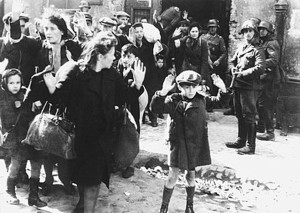The vast majority of such content winds up with that caption or comment anyway, and that users now can save themselves the trouble of doing it themselves.
 San Francisco, June 20 – One of the world’s leading social media platforms has begun to roll out new efficiency features, including the time- and labor-saving measure of having any and all images posted by its account holders and depicting humans in pain, under oppression, murdered, or otherwise victimized, labeled as “Palestine,” since every such photo will end up with that label anyway, as online activists appropriate others’ suffering to bash Israel.
San Francisco, June 20 – One of the world’s leading social media platforms has begun to roll out new efficiency features, including the time- and labor-saving measure of having any and all images posted by its account holders and depicting humans in pain, under oppression, murdered, or otherwise victimized, labeled as “Palestine,” since every such photo will end up with that label anyway, as online activists appropriate others’ suffering to bash Israel.
Twitter announced today the first in seven scheduled upgrades to its service that the company hopes will improve the user experience. The first such upgrade involves the automated “Palestine” tag for any photograph or video clip that shows any person mistreating another, or the misery that results from such mistreatment. The announcement explained that the vast majority of such content winds up with that caption or comment anyway, and that users now can save themselves the trouble of doing it themselves.
“Twitter continues to innovate and to ask what’s best for the the user,” the announcement read. “A significant portion of our user base devotes its efforts to highlight Palestinian suffering. They do so by taking all provocative pictures or clips of people – especially women or children – undergoing apparent abuse, with special attention to abusers wearing uniforms, and declaring that the content shows Israelis oppressing Palestinians, or Palestinians hurting or dead as a result of Israeli actions. Twitter aims to serve its users better, and has therefore launched a new feature to spare those users the effort to hashtag or caption that content with ‘Palestine’ on their own.”
The company’s algorithm performed the task with 99.98% success in controlled tests, a company representative disclosed. “We have high confidence in the utility and accuracy of this feature,” stated the spokesman. “By ‘accuracy’ I mean correctly identifying content that contains such violence, abuse, or the results thereof, not correctly identifying whether the violence, abuse, or the results thereof indeed came from Israelis. That’s not really what our focus ever has been, in case you weren’t paying attention.”
The statement also acknowledged a longtime user gripe: the lack of an edit button to permit users to correct typographical or other errors even after posting. “Our main concern to date,” the statement continued, “has stemmed from the possibility that people would use the feature in bad faith, altering their original content after others have responded, so as to make those responses look silly, offensive, or otherwise objectionable in the new context. We will now enable certain users to access this feature, however: anyone with a flag of Palestine in their profile may edit the tweets of anyone with an Israeli flag or Star of David in theirs.”
Please support our work through Patreon.




